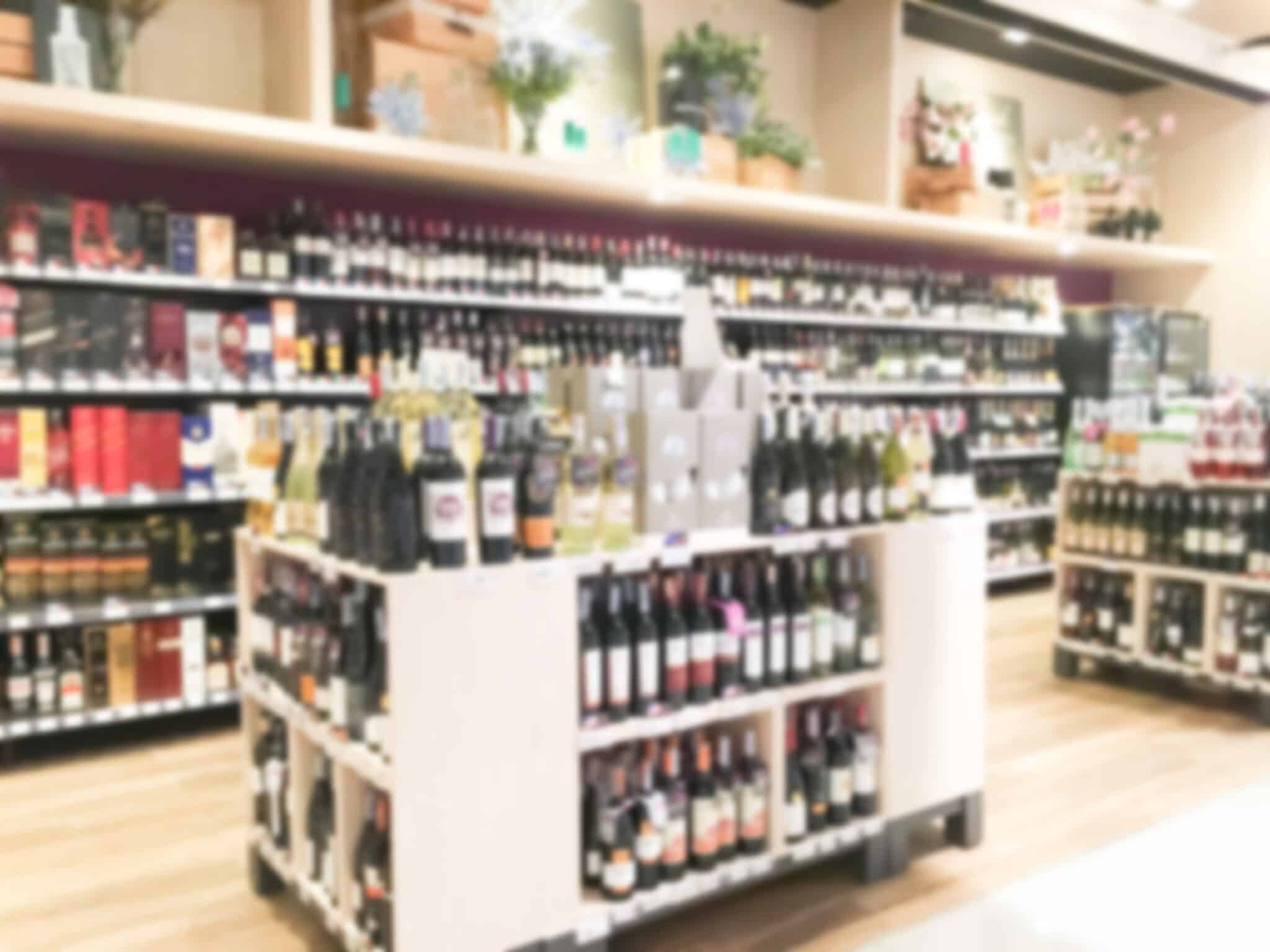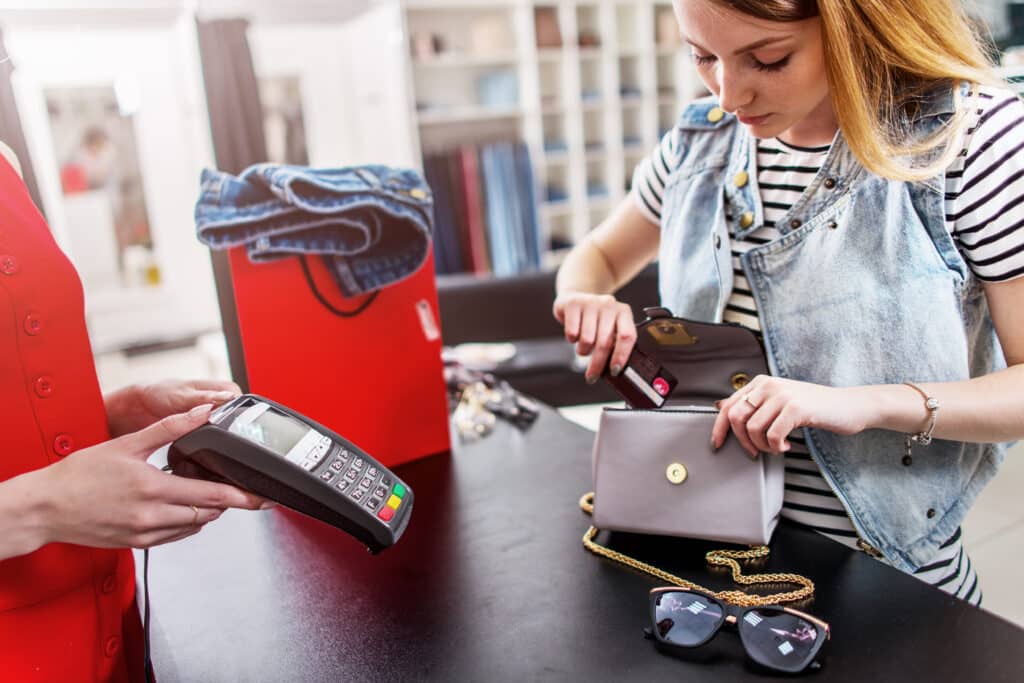As customers, we’ve all experienced the dreaded long lines at the check-out counter in a retail store. It’s frustrating, time-consuming, and frankly, it can leave a sour taste in our mouths. But what if I told you there’s a solution that not only eliminates those lines but also revolutionizes the way retail stores operate? Enter the POS system for retail stores — a game-changer that will make your shopping experience seamless and efficient. In this article, we’ll explore how this innovative technology is transforming the retail industry and why every store should consider investing in it.
Why a POS System for retail store is essential
A point of sale (POS) system is essential for any retail store, regardless of its size or niche. Gone are the days when cash registers were sufficient to handle sales transactions. A modern POS system not only streamlines and simplifies the checkout process but also offers a wide range of benefits that can significantly improve a retailer’s operations.

First and foremost, a POS system provides accurate and real-time inventory management. With every sale made, the system automatically updates product quantities in stock, ensuring that store owners have an up-to-date understanding of their inventory levels at all times. This eliminates the need for manual stock-taking, reducing human error and saving valuable time.
Additionally, a modern POS system enables retailers to gain valuable insights into consumer behavior through comprehensive reporting features. By analyzing data such as top-selling products, customer preferences, and peak purchase times, store owners can make informed decisions about merchandising strategies and marketing campaigns. This data-driven approach helps retailers maximize profitability by targeting their efforts towards high-demand items or specific customer segments.
Omnichannel retailing is becoming more popular. This means that consumers want to be able to shop seamlessly across different platforms. To make this happen, retailers need a reliable POS system. This system helps to connect their physical stores with their online channels. By doing this, retailers can offer customers options like click-and-collect or buy online return in-store (BORIS). This makes shopping more convenient and increases customer satisfaction.
Benefits of a POS System for retail store
One of the main benefits of implementing a POS system in your retail store is improved inventory management. A POS system eliminates the need for manual inventory management. It updates inventory levels in real-time after each sale, saving time and reducing errors. With accurate inventory information, you can make better decisions about stock and promotions.
By using a loyalty program in your POS system, you can reward loyal customers and build better relationships with them. This can be done by offering great customer service, targeted marketing, and special deals. Overall, having a POS system in your store has many benefits. It helps with managing inventory, gives real-time stock information, and improves decision-making for restocking. It also improves the shopping experience by personalizing interactions based on past purchases.
Features to look for in a POS system
When you buy a POS system for your store, there are important features to consider that can help your business. First, think about how easy it is to use. A system that is easy to understand and learn will save time and prevent mistakes. Also, look for a system that can be customized to fit your needs. Find one that lets you change the menu, add new things to sell, and make reports that are personalized.
Another crucial feature to prioritize is inventory management capabilities. A good POS system should let you track inventory levels in real-time, update stock counts automatically as sales happen, and send alerts when items are running low. This helps avoid having too much or too little stock and makes ordering easier. Also, the system should have advanced reporting features. Being able to analyze sales data can give you useful information about customer behavior, peak sales times, popular products, and more. This can help you make better decisions to increase profits.
In conclusion, when selecting a POS system for your retail store, you need to carefully consider features that match your business needs. Prioritize features like an easy-to-use interface, customizable options, strong inventory management, and detailed reporting. This will help ensure smooth operations and maximize profits over time.
How to choose the right POS system for your retail store
When it comes to choosing the right POS system for your retail store, it’s crucial to consider several factors that will ultimately make or break your business. First and foremost, assess the specific needs of your store. Do you require a system that integrates with your inventory management software? Or perhaps one that offers robust reporting features? Understanding what functionalities are essential for your operations will help narrow down the options and find a system that suits your requirements.
Ease of use is another critical aspect to consider when selecting a POS system. A user-friendly interface is not only beneficial for the staff but also for customer satisfaction. Look for systems with intuitive navigation, quick check-out processes, and minimal training required. Remember, at its core, a POS system should simplify transactions while enhancing efficiency in-store — anything overly complicated may deter customers and result in lost sales.
Lastly, think about scalability and futureproofing. As your retail store expands, so too should your POS capabilities. Choosing a system that can grow with your business lets you easily add new locations and features when necessary. Also, picking a cloud-based solution gives you flexibility by allowing you to access real-time data from anywhere, which is helpful when you’re busy or need to make quick decisions.
Choosing the right POS system shouldn’t be taken lightly – it’s an investment in improving daily operations while maximizing revenue potential. Assessing your specific needs, considering ease of use, and planning for scalability are all vital steps toward finding a perfect fit for your
Implementation and training of a POS system
Implementing and training a POS system can be a daunting task for any retail store, but with proper planning and execution, it can also bring numerous benefits. One of the key aspects to consider is choosing the right POS system that best aligns with your specific business needs. This means evaluating factors such as scalability, ease of use, and integration capabilities. By selecting a system that fits your requirements, you can streamline operations and improve overall efficiency.
Once you have chosen the ideal POS system for your retail store, it’s time to focus on training your employees. Often overlooked, training plays a vital role in ensuring successful implementation and adoption of the new system. It provides employees with the necessary knowledge and skills to navigate through various features and functions. An effective approach is to conduct initial classroom-style training followed by hands-on practice sessions or simulations. This way, employees can apply what they have learned in real-life scenarios before going live with the new POS system.
To summarize, when choosing a POS system, it’s important to think carefully. It’s also crucial to train employees well for successful use. These steps will not only make operations smoother but also help staff use all the system’s features effectively. By investing in implementation and training, retail stores can make the most of their investment and improve customer experiences in-store or online.
Integrating other business tools with your POS system
Integrating other business tools with your POS system can significantly enhance your retail store’s efficiency and streamline operations. You can connect your POS system with inventory management software to update stock levels automatically. This helps provide accurate product availability information to customers and reduces the risk of selling out-of-stock items. This integration eliminates manual data entry tasks and ensures that your inventory is always up to date across all sales channels.
Another important tool to integrate with your POS system is customer relationship management (CRM) software. With CRM integration, you can capture valuable customer data during the sales process, such as email addresses and purchase history. This information allows you to tailor marketing campaigns specifically to each customer’s preferences, develop personalized loyalty programs, and provide exceptional post-sale support. By harnessing the power of CRM tools alongside your POS system, you can deepen customer relationships and increase repeat business.

Additionally, integrating accounting software with your POS system enables seamless financial management processes. When your POS system and accounting software are integrated, sales transactions are automatically recorded in the accounting software. This helps with accurate bookkeeping and saves time on manual data entry. It also gives you a clear view of your business’ financial health and allows you to make informed decisions using real-time data.
In conclusion, integrating other business tools with your POS system offers numerous benefits for retail stores. The automation provided by these integrations increases efficiency by reducing manual tasks while improving accuracy across
Conclusion: Enhance efficiency and growth with a modern POS system
In today’s fast-paced retail environment, having a modern POS system is no longer optional—it’s essential for enhancing efficiency and driving growth. Traditional cash registers and manual processes are simply not capable of keeping up with the demands of the modern consumer. A modern POS system streamlines operations, automates repetitive tasks, and provides real-time data analysis—all of which are crucial for staying competitive in an increasingly digital marketplace.
One key benefit of a modern POS system is its ability to enhance efficiency by eliminating time-consuming manual processes. With features like barcode scanning, inventory tracking, and automated purchase orders, employees can spend less time on mundane tasks and more time interacting with customers. This leads to shorter wait times at checkout, improved customer satisfaction levels, and ultimately increased sales.
Another advantage of a modern POS system is its ability to provide valuable insights into business performance. By tracking sales data in real-time, retailers can quickly identify their best-selling products or services, monitor inventory levels accurately, and make data-driven decisions that will maximize profitability. These insights allow retailers to make strategic changes on the fly based on current market trends—a luxury that traditional cash registers simply cannot offer.
Investing in a modern POS system is a smart move for any retailer looking to enhance efficiency and drive growth. By automating processes, providing valuable insights into business performance, and offering an improved customer experience through reduced wait times at checkout—retailers can stay ahead of the competition in today’s rapidly changing digital landscape. So why settle for outdated systems when implementing


